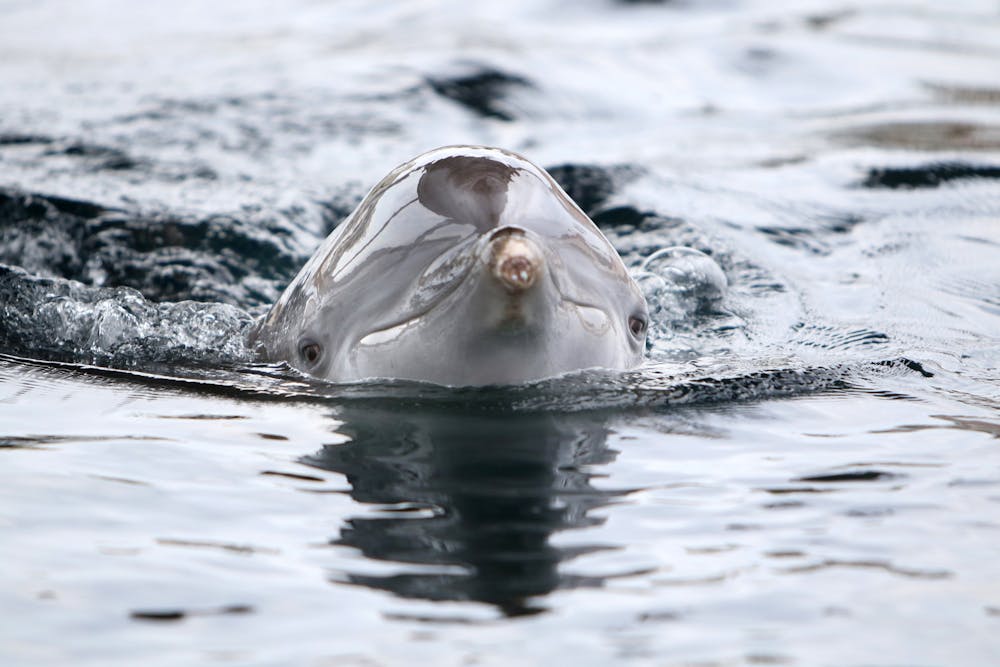If you see a dolphin off the North Carolina coast with a big bulb on his dorsal fin, you might just be looking at Onion, a bottlenose dolphin who spends his summers in the Outer Banks.
A new bill in the state legislature would make bottlenose dolphins, like Onion, the state's marine mammal. House Bill 2 passed the House unanimously and is waiting for a Senate decision.
“You know you're in a good spot when dolphins are around,” said N.C. Rep. Bobby Hanig, R-Currituck, Dare, Hyde and Pamlico, who is the bill’s primary sponsor and chairperson of the N.C. House's Marine Resources and Aqua Culture Standing Committee.
The bill cites bottlenose dolphins' abundance, athleticism, social habits and appearance for making the animal North Carolina's official marine mammal.
"... Whereas bottlenose dolphins have a short, thick beak and a curved mouth, giving the appearance that they are always smiling," the bill states.
The common bottlenose dolphin is a frequent visitor to North Carolina’s coasts. Jessica Taylor, executive director of the Outer Banks Center for Dolphin Research, said if you see a dolphin from the beach, it’s likely a bottlenose.
Taylor said dolphins and other cetaceans, a type of marine mammal that includes whales and porpoises, are also good indicators of environmental health. Cetaceans have long lifespans and are often at the top of the food chain, so their health and behaviors can be used to study fish, contaminants and water quality.
Making sure the ecosystem is balanced is especially important in coastal areas, where many locals depend on visitors to the beach for their income.
“Basically everybody who lives here is dependent upon tourism, and tourism is dependent upon the health of the environment,” Taylor said.




